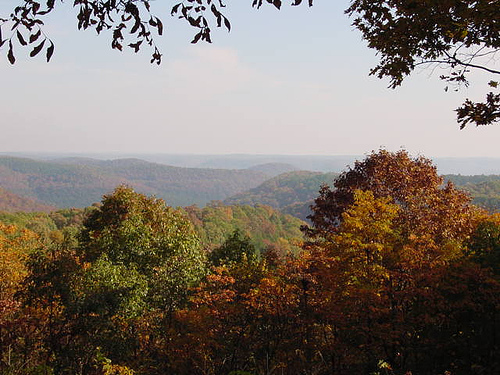
Image Credit: Topato/PhotopinCC
When selecting a book to read or buy, like most folks, my eyes automatically scan the cover for telltale clues about the book’s content.
Many times if the cover art is intriguing, I’ll give the book a second glance and I’ll at least peruse the book a little longer. I’ll probably read the back cover copy and get a feel for the story, the setting, and the characters.
The deciding factor in reading or purchasing the book (for me) will ultimately be the story. If the plot doesn’t appeal, the setting won’t matter.
I think of it like this: the plot is the glue and the setting the glitter. An interesting setting enhances an already great thing. (As a side note, if you missed Wednesday’s post I talked about what makes a story work.)
To be honest, I’m less likely to crack open a book if the setting is too far-fetched, off-the-wall, or simply unappealing. For instance, fictional stories set in prisons, deserts, or morgues probably aren’t going to capture my interest. (Although…one of my favorite Bible heroes did spend a lot of time in prison, and to this day, his true story remains one of my favorites.)
Interesting settings prime my creative pump. They influence what I envision as I read, and certainly, they play a huge factor in what I write.
You may remember, too, I’m very fascinated by architecture. I appreciate interesting lines, fascinating angles, and attention to detail. I prefer a lived-in feel. I’m partial to native stone, winding staircases, and big rooms with tall ceilings. And I especially like homes and buildings rich in history and steeped in charm.
Places of yesteryear hold a certain nostalgia for me. When I step through the doors of a time-worn structure, I can close my eyes and almost be whisked away to how life must have been there.
I like seeing how others have lived and getting a sense of what was important to them. I suppose that’s why I pay careful attention to the settings I create for the characters in my novels. As I read and write, I try to immerse myself within the story by walking in the characters’ shoes, or at the very least, ambling up beside them.
In the fictional, faith-based stories I write, the geographical setting is one I know well and one that holds sweet memories for this born and bred Ozarkian gal. The vibrant foothills of the Missouri Ozarks are the colorful backdrop where my characters live.
Their homes play an integral role to each story. Some of their abodes are just like they are: simple and down-to-earth and as comfy as a favorite quilt fresh out of the cedar chest.
Other characters’ dwellings might be a little more mysterious with secrets begging to be told, and perhaps, a few puzzles needing solved. Then there are the stately mansions, appealing to the eye, but their bones may be tired and in need of a realignment––somewhat like their new owners.
When setting and story come together in a unique and thoughtful way, the effect is sublime. (Here’s an example of a movie classic that garnered a lot of buzz many years ago. I didn’t care for the book, but I adore the movie for various reasons.)
Though the setting of a novel can’t take the place of a great story, it can enhance it and paint a visual to create a more exciting ride.
***
PLEASE SHARE:
It can’t trump story, but this element enhances an already great thing. (Click to Tweet)
The plot is the “glue” and the setting the “glitter.” Agree? (Click to Tweet)
As a reader, do you have favorite settings you prefer?
As a writer, do you feel a setting can make or break an otherwise great story?
***
Happy Writing, Happy Reading!
Blessings Always,


Comments 2
I like a good setting, too! Sometimes I don’t care as much about the geographical setting as the actual storyworld…like, a fun and quirky small town could be set in just about any state and I’d love it if it had the right feel…which is harder to define, but yeah, I love storyworlds that come alive. As a writer, I feel like storyworld can actually become a character in the story…and it just adds all the more to the reader’s experience.
Author
Melissa, I like fun, quirky towns, too! You’re right—if the story grabs my interest and comes alive, then setting becomes secondary. That being said… there are still some geographic regions that might not be my cup of tea, but they may of course be someone else’s. I like your perspective. =)